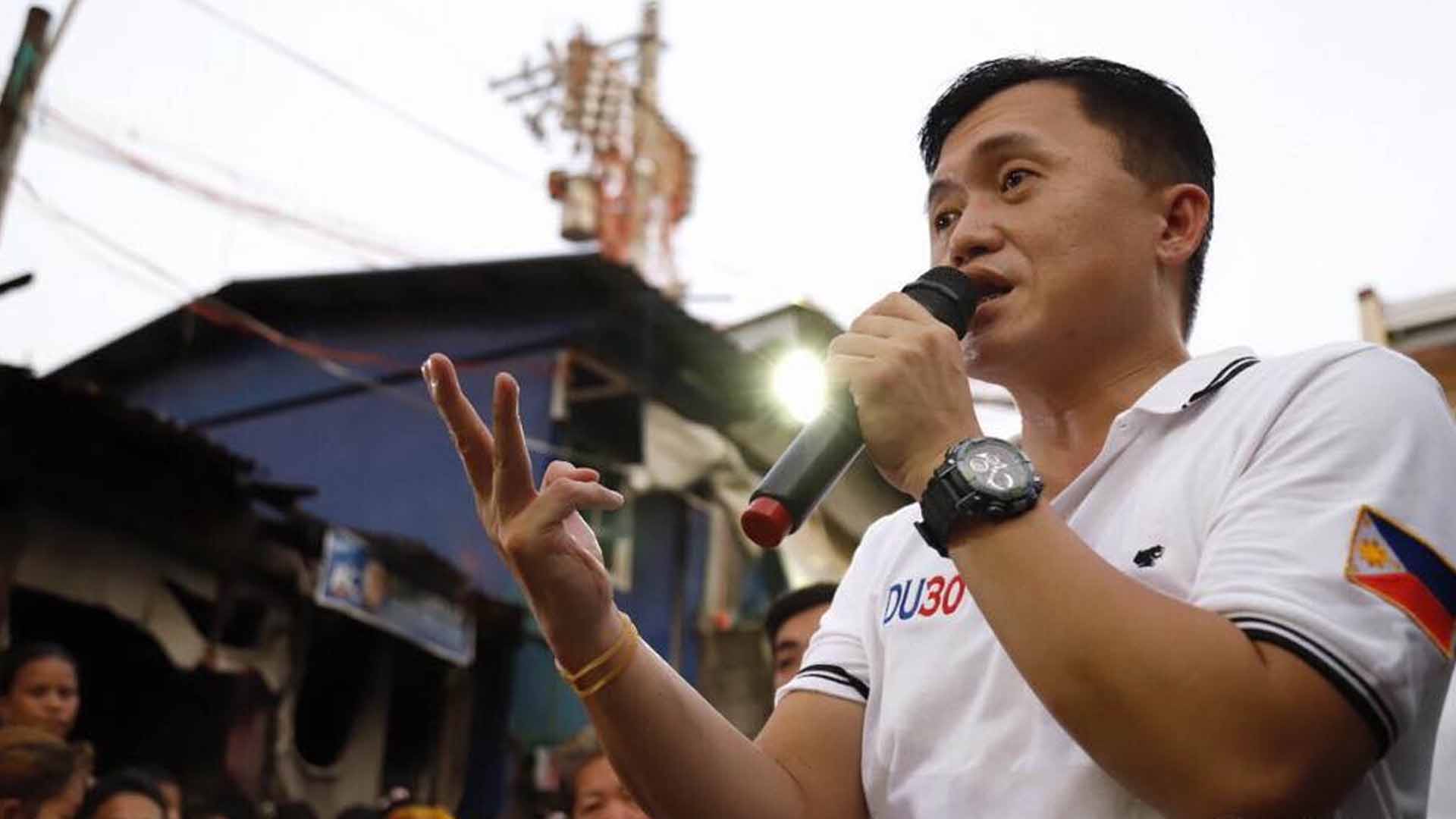Senator Christopher Lawrence “Bong” Go emphasized that the Malasakit Center program is open to serve all Filipinos during the interpellation period for Senate Bill No. 199, or the “Malasakit Center Act of 2019”, sponsored by the Senator, on Tuesday, October 1.
Go answered questions from Senators Frank Drilon and Risa Hontiveros during the interpellations.
“Hindi po ba magbabago ang proseso sa bill na ito ang pagbibigay ng tulong ng aking opisina sa mga nangangailangan?” Drilon asked during his inquiry.
“Hindi po,” Go answered. “Walang po itong pipiliin. Basta Pilipino ka, qualified ka. Kahit ang mga humihingi ng tulong sa opisina ni Senator Drilon, Hontiveros, Pangilinan, pwede po kahit sino. Wala po itong pinipili.”
Asked on whether patients can still directly go to the offices of concerned agencies despite the existence of Malasakit Centers, Go said they can.
However, the senator also pointed out that it might be more convenient for patients to seek assistance in Malasakit Centers since they are already inside the hospitals.
“Kaya lang itong bill nila sa loob ng hospital, nandoon na po. Hindi na nila kailangan mamasahe. Bakit pa sila pupunta diyan sa Philippine Charity Sweepstakes Office (PCSO) kung nandiyan na ang opisina,” Go said.
During the interpellations, Go said that, currently, there are eighteen Department of Health (DOH)-run hospitals with Malasakit Centers and the remaining 24 hospitals with existing Malasakit Centers are locally-run, meaning LGU, provincial and city hospitals-run. Drilon, then, clarified if the 24 locally-run hospitals are covered by the provisions of the bill.
Go responded, saying that the 72 DOH-run hospitals will be prioritized but a criteria will be set for LGUs that want to set-up their own Malasakit Centers to ensure that these will be consistent, sustainable and fully operational.
“Sa ngayon, uunahin muna ang 72 DOH-run hospitals. We will set criteria para doon sa mga LGUs if those said hospitals meet the standards and criteria,” Go answered. “If they will not follow the standards, they cannot use the name ‘Malasakit Center’.”
Responding to Drilon’s request, Go also detailed the process of availing services in the centers, saying that he also plans to establish a similar office in the Senate’s Public Assistance Center.
“Plano rin po nating maglagay ng Malasakit Center sa Public Assistance Center ng Senate. Halimbawa, nandyan na ang apat na ahensya ng gobyerno. Same process, walang pipiliin. Ang target po natin dito, zero balance,” said Go.
Drilon also sought clarifications regarding Section 5 of the proposed measure that seeks to establish a Malasakit Center Program office in the DOH by “augmenting, reclassifying and strengthening the Public Assistance Unit of the DOH.”
According to Go, the said unit of the DOH needs to be converted as it has limited personnel.
“Currently, the Public Assistance Unit of the DOH only has three plantilla positions. It is just apt to convert the unit of the office,” said Go.
He also said that the Department of Budget and Management (DBM) has expressed support for the creation of the office in the DOH.
“It will also oversee the operations of the Malasakit Centers. This will require additional personnel. I have talked to the DBM and they have submitted a position paper indicating support for the creation of the office. Mag-hire lang tayo ng bagong social workers para magbigay ng serbisyo,” Go said.
Asked on whether the PCSO will need to provide funds to the Malasakit Centers, Go said that the centers will not get money from the agency and the discretion of giving assistance to the patients will depend on the agencies themselves.
“The discretion of giving assistance to the patients, hindi na po dadaan sa Malasakit Center. It would be direct from the representative of the PCSO, depending on the availability of funds of the PCSO. Ito po ‘yung charity fund. Sila ang magde-determine sa assistance na ibibigay nila sa pasyente. Walang dadaan sa Malasakit Center or Malasakit Center Program kahit piso. They will be the one to determine their assistance to the patients,” Go clarified.
Go also said that he seeks to institutionalize Malasakit Centers because some offices still lack personnel.
“There are 18 Malasakit Centers in DOH-run hospitals. Per DOH, there are three personnel in each center. But some Malasakit Centers, including LGU-run are ‘bungi-bungi’. Kulang kulang ang personnel. That’s why we are pushing for the institutionalization of Malasakit Center,” said Go.
Meanwhile, Senator Hontiveros said during the interpellations that she “fully supports interventions that seek to reduce the out-of-pocket health expenditure of all Filipinos” but sought to clarify some things regarding the proposed measure, particularly if the PCSO still has sufficient funds to provide assistance.
Go said that there are charity funds still available for the programs of the PCSO despite the UHC Law mandating for the 40% of such fund to go to PhilHealth.
“Under the UHC, 40% of the charity fund of the PCSO will go to PhilHealth. There would still be 8% of the charity fund available for the PCSO and its charity programs,” said Go.
“Hindi po kukunin ang contribution ng PCSO to the UHC,” he clarified.
Asked by Hontiveros on whether the measure will, in any way, amend or supersede Section 37 of the UHC Law and reallocate what has already been appropriated in the said measure to fund Malasakit Centers, Go said that the Malasakit Center Act will not spend or reallocate any funds.
“No, walang gagalawin na pondo o kontribusyon ang Malasakit Center. The bill will not amend the UHC law. It will complement the law,” Go assured. (senate.gov.ph)








